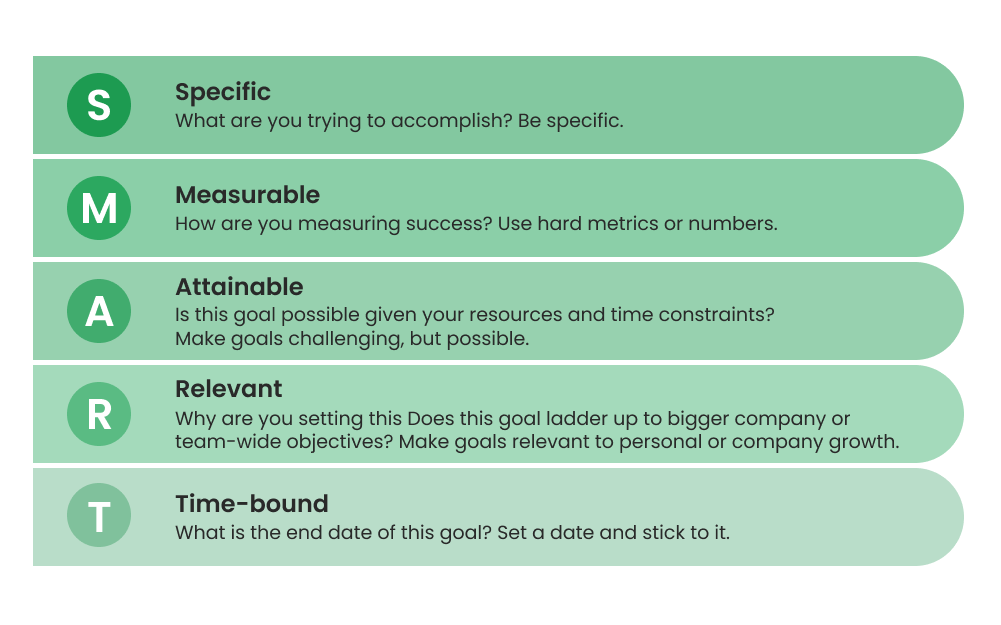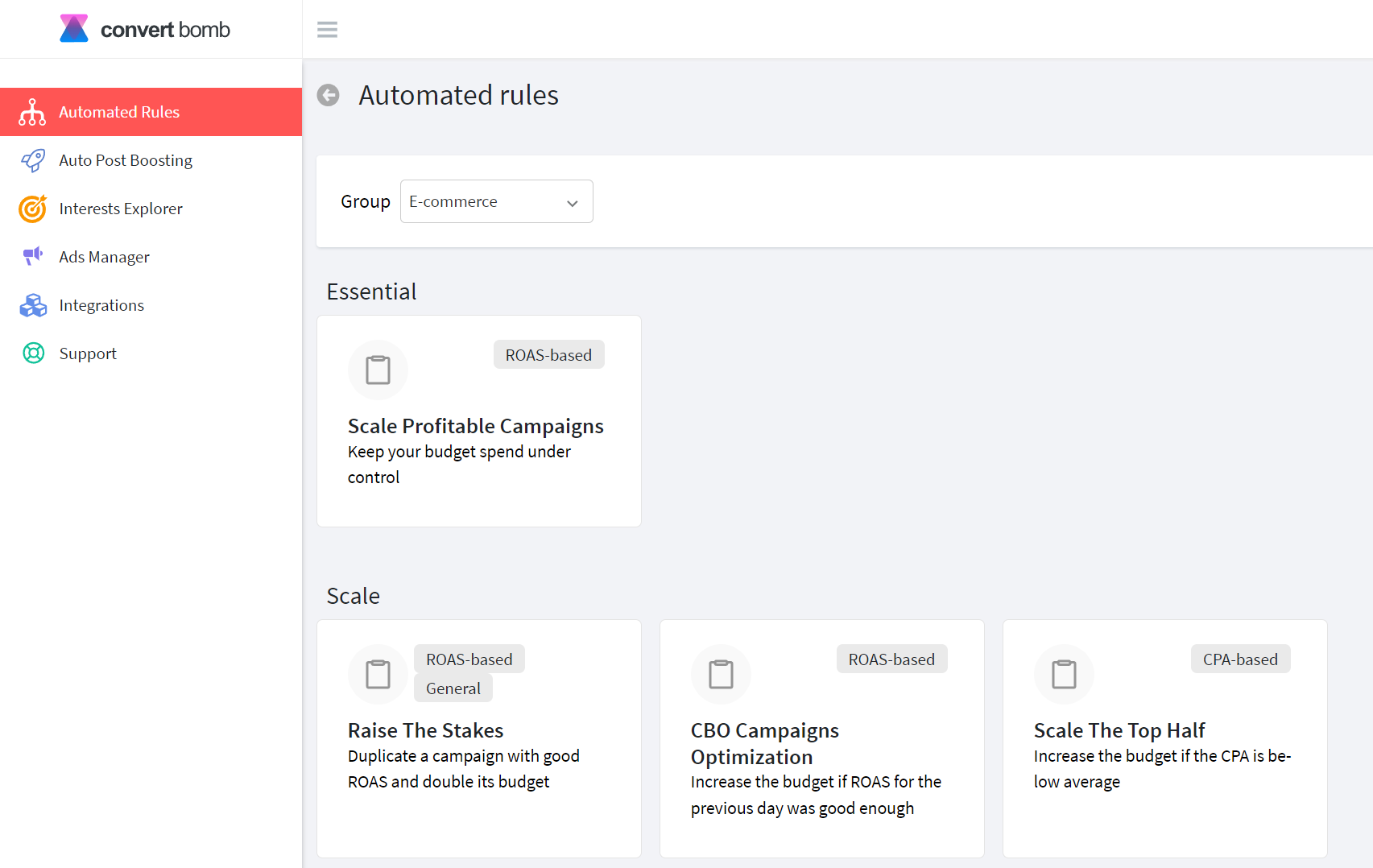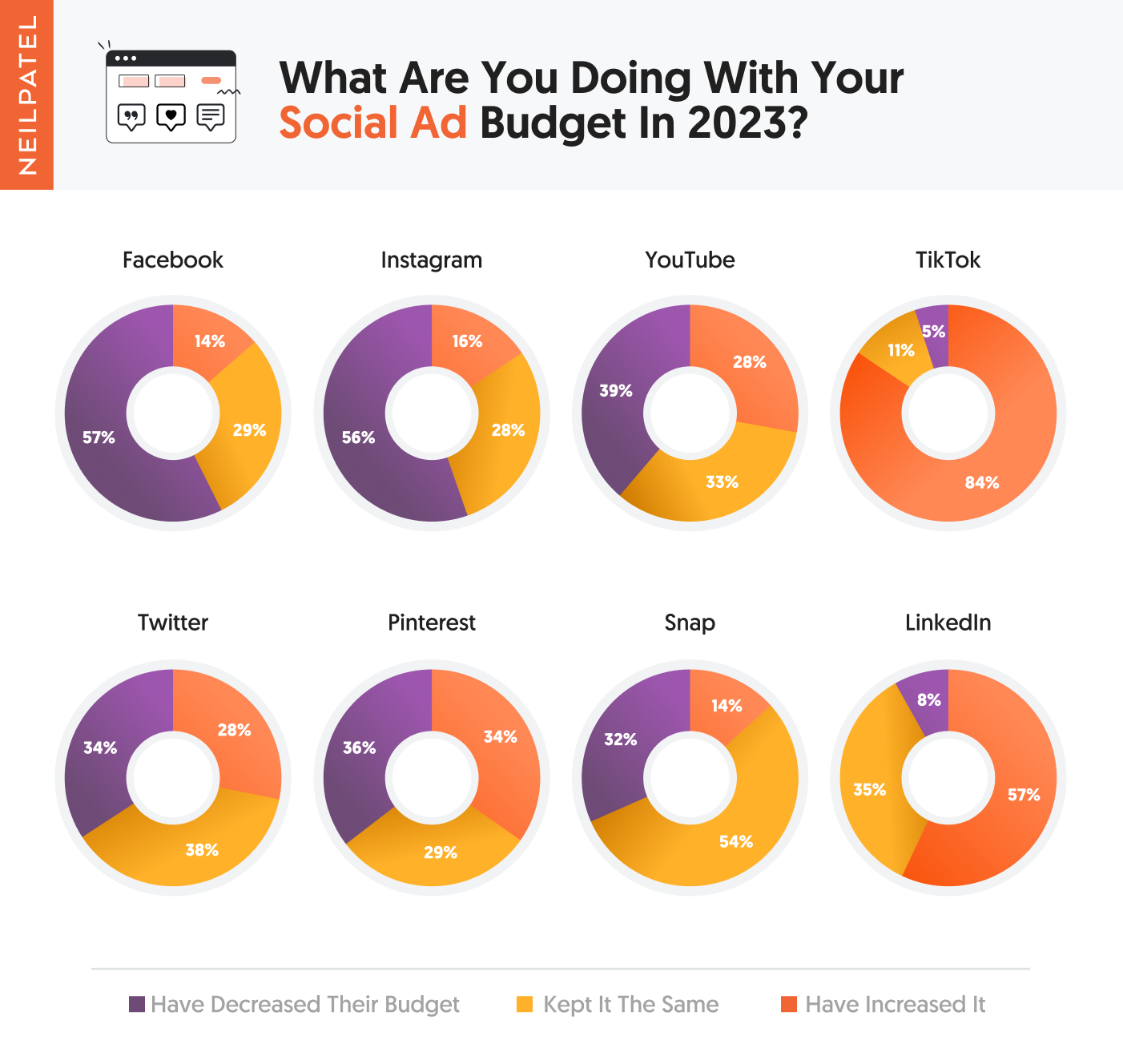5 Common Ad Management Challenges and How to Solve Them
2024-02-05

The process of managing ads can be complex and time-consuming, and comes with a number of challenges. It requires strategic planning, effective time management, expertise in digital marketing, efficient budget allocation, and the ability to scale wisely.
This may sound too complicated, but luckily, all of this can be solved.
In this article, we will explore five common ad management challenges that advertisers might encounter and provide actionable solutions to overcome them. By addressing these challenges head-on, advertisers can optimize their campaigns more effectively and achieve better results.
1. Lack of a plan
Sometimes, ad campaigns fail simply due to the lack of a well-defined plan. Without a clear strategy, advertisers may struggle to reach their target audience, deliver compelling messages, and achieve their campaign objectives. The lack of a plan also makes it difficult to manage ads effectively because the whole ad management process becomes chaotic and disorganized.
Here’s how you can solve this issue:
- Define clear and measurable goals for your ad campaign
Having a clear picture of what you’re trying to achieve with that particular campaign will help you evaluate its success and optimize its performance accordingly.
First of all, you’ll need to choose the right objective for your campaign: it can be increasing brand awareness, driving website traffic, generating sales, etc. The list of objectives may differ depending on the platform. A correctly defined campaign objective will guide your entire ad management process: help you judge the success of your campaign and make reasonable ads adjustment decisions.
When setting goals for your campaign, it might be helpful to follow the SMART acronym. It stands for Specific, Measurable, Attainable, Realistic, and Timely, and it covers all characteristics of a great goal.

SMART is an excellent goal-setting framework that can help you create advertising strategies that work
- Identify your target audience
In order to make sure that your ads will be shown to people who might be interested in your offers, first, you’ll need to gain an understanding of your target audience: their demographics, interests, behaviors, preferences, etc.
Besides the initial audience research, you can also benefit a lot from running A/B tests with your ad campaigns. This will be immensely helpful for getting objective data about your audience’s preferences.
If you know your audience well enough, you’ll be able to pick the right outreach channels and tailor your message and ad creatives to their needs and tastes. The golden rule of advertising is that the more relevant your ads and offers are for your audience, the better results you’ll get.
- Be consistent
While the process of running ads involves a lot of flexibility and creativity, it’s still better to follow certain rules and algorithms to ensure your ads are on the right track.
For example, based on when your target audience is most active, you can develop a specific schedule for running your ads. You can choose the days and hours when your ads are going to run, decide for how long they’ll be running, set dates for launching new campaigns or introducing new ad sets and ads, and so on.
To ensure that your ads are consistent in style and messaging, you can also come up with content themes that you’ll be using for different target audiences or campaign objectives, and stick to them.
The same goes for organizing all other aspects of creating and executing your ad campaigns. Introducing some regularity into your ad management process will give you more control over campaign performance and help you assess their results more objectively.
2. Time management
Ad management can be a time-consuming process, especially for advertisers running multiple ad campaigns across several platforms, and we know that time is a limited resource.
Lack of time can lead to a lot of negative consequences like making rushed decisions, committing accidental mistakes, missing promising opportunities, and simply being too stressed out.
The lack of time also makes it hard to adequately assess the performance of all your campaigns and spot the right moment to optimize or scale them, which is important for ensuring their success.
We can definitely take certain actions to use our time more efficiently. Here's what can help you with this:
- Leverage automation
As many productivity gurus like to say, “Work smarter, not harder”. And this motto fits our times very well: nowadays, we can easily access the power of AI and automation tools to make our lives and jobs a lot easier.
One of the key opportunities that these new technologies offer is the ability to automate many repetitive tasks that take too much of our time. Ad management is no exception here: it involves a lot of manual ad performance monitoring and adjustment work and you can definitely benefit from automating this process.
For example, you can utilize tools like ConvertBomb for automating all basic ad management tasks: pausing ad campaigns when they don’t deliver the expected results, increasing the budgets for high-performing campaigns, etc.

With ConvertBomb, you can quickly stop low-performing ads automatically: our algorithms will do the job for you while you’re busy with other tasks.
The process is quite simple: you just set specific rules by choosing what’s going to happen to your ads when a specific condition is met, and then sit back and relax while your ads are being optimized automatically. You’ll be instantly notified when any significant changes happen to your ads, so you won’t have to worry about missing something important.
This frees you of the obligation to constantly monitor your ads and helps you implement data-driven decisions defined by your plan automatically.
In short, by using automation tools you can save a lot of time for other things that can’t happen without your input – like developing a strategy or crafting winning ad creatives, for example.
3. Lack of Expertise
Another challenge businesses might face when managing ads is a lack of expertise. Effective ad management requires a deep understanding of ad platforms, targeting options, and optimization strategies. This can become a serious problem for inexperienced advertisers.
Here’s how to deal with it:
- Reach out to experts
Knowledge is crucial for running successful ad campaigns online, which is why you might partner with external advertising experts or agencies to improve your team's knowledge and skills.
They can provide you with valuable insights, guidance, and mentorship, helping you execute ad campaigns that deliver great results. Hearing new opinions will also bring fresh perspectives and innovative approaches to your advertising efforts.
All of this can help your team bridge the expertise gap and learn how to thrive in oversaturated online markets.
- Use special tools
Various tools, both third-party and native to specific advertising platforms, can help you support your advertising efforts. They provide useful optimization features, as well as insights and recommendations on how to run successful campaigns. This can help you compensate for the lack of expertise by streamlining processes, and providing data-driven insights.
For example, with ConvertBomb you can simply choose one of the pre-defined optimization strategies that combine a set of specific rules depending on your goal. That makes it easier to optimize your campaigns based on performance data without the need for extensive knowledge of ad management intricacies.

You can select one of the ConvertBomb’s readily available rule templates and customize it to fit your campaign.
If you’re new to ad management automation, this can be an excellent choice for exploring the optimization tactics developed by experts and applying them to your campaigns.
- Invest in learning and training
Continuous learning and training are the basis of success in many spheres including online advertising. That’s why it can be extremely beneficial to invest some resources into gaining knowledge about the fundamentals of running and managing ads.
For example, you can select the most relevant materials from the plethora of industry resources, online courses, and webinars that focus on advertising principles, strategies, and best practices, like Udemy, Coursera, or any marketing specialist you look up to that provides educational resources.
While it might take you and your team some time to navigate the learning curve, it definitely will be worth it. By investing in ongoing education, you can always stay up-to-date with the latest tactics and technologies, gaining an advantage over your competitors.
- Experiment and analyze data
Besides more traditional forms of acquiring knowledge like learning from professionals, you can also gain valuable insights from your own experience.
When running ad campaigns, test different advertising strategies, platforms, formats, and audience segments, and closely monitor and analyze the results to get a clear picture of what might work best for your business.
By developing this experimentative and data-driven approach, you will be able to get hands-on knowledge of the most successful strategies for you
4. Ineffective budget spending
For many businesses, choosing a reasonable advertising budget and spending it well can be a major challenge. Ineffective budget spending can lead to wasted ad spend and underperforming campaigns.
That’s why managing an ad budget efficiently is crucial for maximizing return on investment.
Here are some recommendations that can help you spend your budget more rationally:
- Choose the right budget and bids
To choose how much money you can spend on a particular campaign, the first thing you’ll need to do is clearly define your advertising objective. Brand awareness, website traffic, lead generation, sales, etc. – each objective has its own specifics and thus may require a different level of investment.
It’s crucial to take into consideration these things as well:
1. Understand your target audience.
Conduct thorough research to identify your audience's demographics, interests, online behavior, and purchasing patterns. This information will enable you to allocate your resources more efficiently and tailor your bids to reach the right people at the right time.
2. Look at your competition.
Competitive analysis plays a vital role in determining your ad campaign's budget and bid strategy. Evaluate your competitors' advertising efforts to gain insights into their approach. Understand the average bidding landscape for your industry and adjust your bids accordingly. This knowledge will help you remain competitive while ensuring optimal resource allocation.
3. A/B testing.
Remember that if you’re still unsure about your budget, you can always start small and then scale from there. Testing different bid amounts and adjusting based on the results will allow you to find the sweet spot where your ads deliver the best ROI.

You can also see how other advertisers prefer to spend their money – this might help you stay up-to-date with the latest trends and make informed choices (Source: Neil Patel’s blog).
This will help you set a reasonable budget by aligning it with your goals and expectations.
- Monitor, test, and optimize
The work doesn't end after setting your initial budget and bid. Continuously monitoring how your ad campaigns perform is crucial for making the necessary adjustments like increasing or decreasing the ad budget.
Monitor and analyze metrics such as CTR, clicks, conversions, CPD, ROAS, and others depending on your campaign objective to evaluate its performance and choose the best course of action.
Identify underperforming areas and reallocate resources accordingly, ensuring that your campaign remains cost-effective and aligned with your objectives.
5. Difficulty scaling ads
Scaling your ads is essential if you want to get better results from your ad campaigns and increase the scope of your advertising endeavors. It allows you to boost the visibility of your ads, customer acquisition rates, and revenue.
However, scaling can be a significant challenge for many advertisers. For example, you might find yourself unable to find the right scaling strategy or discover that the strategy that worked for one campaign does not work for the other one.
Moreover, as you expand your ad campaigns, the process of managing them all manually with equal attention becomes increasingly difficult, especially when it comes to maintaining the same performance level as before.
But every problem has its own solution. Here are some common tips that can help you scale your ads better:
- Start with a solid foundation
Before scaling your ads, you need to ensure that you’re choosing the right “candidate”, so to speak.
What you can do is carefully review the performance of your top campaigns to get a clear understanding of what contributed to their success: their target audiences, ad creatives, bidding strategies, etc. For this reason, it would be good if you practiced A/B testing different ad variations. This will help you develop the most effective scaling strategy for a particular campaign and optimize it effectively should the need arise.
- Increase ad spend gradually
Increasing the budget is one of the most common ways to scale your ads. However, by spending too much too quickly you’re risking losing more than what you’re gaining. That is why it's important to increase your ad budget gradually to maintain control and evaluate the impact of the increased spending on ad performance.
You can start by increasing your budget by 15-20% every few days and monitoring ad performance metrics to identify performance fluctuations. This allows you to make sure you don’t overspend and get the optimal returns on investment. Automation tools can also help you with scaling budget based on certain KPIs.
- Experiment with new targeting options and audience segments
Another basic scaling method is to expand your existing audience or try another targeting approach or a segment to catch the attention of more people.
For example, this could involve experimenting with other types of audiences (e.g. custom audiences and lookalikes) or targeting additional demographics, geographic locations, or interests related to your product or service.
By leveraging data and insights from your existing campaigns, you’ll be able to refine your targeting approach and create more tailored ad experiences for any audience that you might want to target.
- Explore new platforms and placements
To stay ahead of your competition, it’s essential to keep exploring all possible options to get the desired results. This includes experimenting with new advertising platforms and placements beyond those you’re already using.
For example, you can research and test different platforms like social media networks, display networks, search engines, or video advertising platforms that align with your target audience and objectives but that you haven’t paid attention to before.
You can also explore different ad placements and formats to expand your reach. For example, platforms like Facebook offer a variety of placements including the Audience Network and Instagram, which can help significantly increase your ad's visibility.
To sum up
It’s quite obvious that overcoming all these ad management challenges is crucial for achieving success in digital advertising.
Hope we’ve provided some useful strategies to tackle them, and you’ll be able to enhance your ad performance, drive better results, and save time, reaching all of the goals you’ve set for your business marketing.

